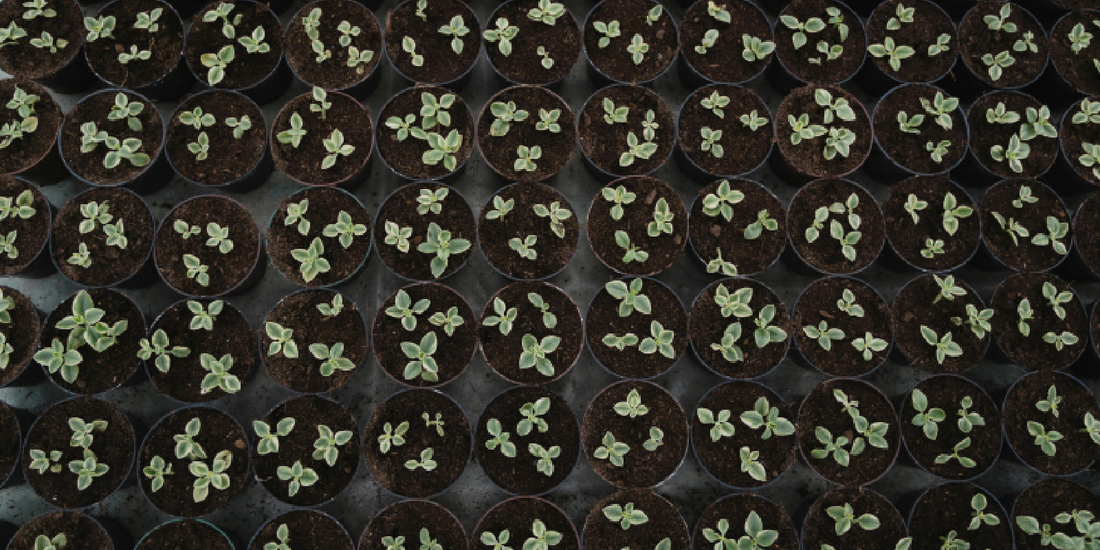
How to Use Vertical Space for Indoor Gardening
Share
🌿 Introduction: Why Vertical Gardening is the Future of Indoor Plant Living
Whether you live in a small apartment, a cozy studio, or a house with limited sunlight, one truth remains: horizontal space is limited—but vertical space is often wasted.
That’s where vertical indoor gardening comes in.
By building upward rather than outward, you can grow more plants, improve lighting distribution, reduce clutter, and even turn your plant setup into a striking design feature. The key? Choosing the right tools—and having a thoughtful layout.
In this guide, you’ll learn:
- Why vertical gardening is perfect for indoor spaces
- The best techniques to optimize your vertical layout
- How to layer your plants properly for light and air circulation
- How the amoyls VerdantGlow S-Shaped 8-Tier Plant Shelf helps you create a flourishing green wall that saves space and looks stunning
Let’s take your plant game to the next level—literally.
🌱 Part 1: What Is Vertical Indoor Gardening?
Vertical indoor gardening is the practice of growing plants in upward-facing arrangements rather than spreading them across floor or table space.
This can involve:
- Tiered plant stands
- Wall-mounted planters
- Hanging baskets
- Trellises or climbing structures
- Modular shelf systems
For urban dwellers or minimalist decorators, it offers a smart solution to the age-old problem: “Where do I put all these plants?”
📏 Part 2: Why Vertical Space Matters in Plant Design
Here’s why smart vertical design isn’t just trendy—it’s essential:
1. Maximizes Growing Area
You can grow 3–4 times more plants using a vertical setup vs. horizontal.
2. Improves Light Access
Vertical shelves allow more even exposure to grow lights or window light, reducing leaf droop and leggy stems.
3. Encourages Better Air Circulation
Space between levels reduces mold risk and pest build-up.
4. Creates Visual Impact
A wall of green becomes a focal point—bringing life to bland corners.
5. Simplifies Care
Watering, pruning, and rotating are easier when plants are arranged at varying heights.
🌟 The amoyls VerdantGlow Shelf was specifically designed to offer all these benefits in one space-saving solution.
🪴 Part 3: Choosing the Right Vertical Garden System
Not all shelves are created equal. If you’re going vertical, here’s what to look for:
|
Feature |
Why It Matters |
|
Tiered Structure |
Lets you layer plants at different heights |
|
Open Frame Design |
Encourages airflow and visibility |
|
Stable Construction |
Prevents tipping over or shaking with weight |
|
Built-in Grow Lights |
Ensures each plant gets consistent light exposure |
|
Sleek Aesthetic |
Allows seamless integration with home decor |
✅ The amoyls VerdantGlow S-Shaped Shelf checks all the boxes:
- 8 wooden tiers
- Full-spectrum LEDs
- S-curved design for elegance and utility
- Easy to assemble and maintain
📐 Part 4: How to Design a Vertical Plant Layout (With Light + Space In Mind)
Think of your shelf like a multi-story plant hotel. Here’s how to assign each “room”:
Top Tiers:
- Light-loving herbs and succulents
- Low-profile, compact pots
- Great for showcasing trailing vines
Middle Tiers:
- Foliage plants like pothos, philodendron, and monstera
- Medium pots, preferably with drainage trays
- Best spot for balance of light and airflow
Bottom Tiers:
- Shade-tolerant plants: ferns, peace lilies, calatheas
- Heavier pots (for stability)
- Add a tray for humidity if needed
💡 Pro Tip: Leave one tier partially empty to improve light bounce and airflow, or use it as a rotating propagation station.
💡 Part 5: Using Grow Lights in a Vertical Garden Setup
Natural light is rarely enough in vertical systems—especially for lower shelves. That’s where full-spectrum grow lights like those in the VerdantGlow shelf make all the difference.
How to Use Grow Lights Effectively:
- Run lights for 12–14 hours/day
- Keep plants 6–12 inches from the light source
- Avoid “light stacking”—ensure light from one level doesn’t block the next
- Adjust based on plant type: herbs and succulents need more than ZZ plants or ferns
🌞 The built-in LEDs on each shelf make VerdantGlow ideal—no need to install extra lighting or cords.
🧱 Part 6: Save Space Without Sacrificing Volume
Small spaces don’t mean fewer plants—they just mean smarter placement.
Vertical Layout Wins:
- A 2 ft x 2 ft floor area can support 8+ plants on a vertical shelf
- Corner placement saves wall space
- The S-curve design prevents shadow overlap
🏡 Ideal Locations:
- Apartment corners
- Kitchen walls (for herbs)
- Entryways with indirect light
- Bedrooms (for calming greenery)
🌟 Whether you have 400 sq ft or 4,000, vertical design scales with your lifestyle.
🔧 Part 7: How to Build Your VerdantGlow Vertical Garden
What’s in the Box:
- 8 wooden S-shaped tiers
- Durable black steel frame
- Built-in full-spectrum grow lights
- Adapter with timer
- Tools + instructions included
Assembly Tips:
- Build on a flat surface
- Work from bottom to top
- Tighten screws gently but firmly
- Wipe tiers with a damp cloth before use
- Plug in and test light connections before final placement
⏱️ Average Setup Time: 25–30 minutes
🎨 Part 8: Styling Your Vertical Garden Like a Pro
Make your green wall Insta-worthy.
Style Enhancers:
- Consistent pots: Match material or color for harmony
- Plant risers: Add height variation on each shelf
- Accent objects: Books, candles, framed prints
- Trailing plants: Let vines drape down for a waterfall effect
- Seasonal swaps: Use lower tiers for seasonal color or flowers
🧼 Part 9: Maintenance & Care Tips for Vertical Gardens
A little routine goes a long way.
Weekly:
- Wipe leaves and lights
- Check soil moisture
- Rotate pots for even growth
- Prune overgrown stems
Monthly:
- Refill humidity trays (if used)
- Re-pot or fertilize as needed
- Inspect light fixtures for dust or wear
🌿 The VerdantGlow’s open design makes cleaning quick and enjoyable—not a chore.
🌿 Part 10: Ready-to-Go Vertical Garden Plant List
Want a quick-start setup? Try this:
|
Shelf |
Plant Recommendation |
Notes |
|
1 |
Rosemary, thyme, basil |
Aromatic herbs, top tier light |
|
2 |
Succulent mix |
Minimal water, compact |
|
3 |
Pothos + tradescantia |
Trailing beauty, fast growers |
|
4 |
Philodendron + spider plant |
Easy care, air purifiers |
|
5 |
Snake plant |
Low light lover |
|
6 |
Fern + ZZ plant |
Shade-tolerant |
|
7 |
Calathea or prayer plant |
Moisture-loving foliage |
|
8 |
Decorative moss bowl |
Optional or seasonal color |
With just one VerdantGlow shelf, that’s 16+ plants in one space-efficient setup.
💬 What Customers Are Saying
“I live in a 500 sq ft studio, and the VerdantGlow shelf let me go from 4 sad plants to 12 thriving ones—without cluttering my space.”
— Erica D., Brooklyn
“It’s a vertical jungle now! Each shelf gets the right light, and the S-curve looks like art in my hallway.”
— Marcus F., Seattle
“Best investment I’ve made for my plants and my home decor.”
— Lisa K., Toronto
🛍️ Where to Get Your amoyls VerdantGlow Shelf
Take your indoor garden to new heights.
👉 Shop now at www.amoyls.com
Includes:
- 8-tier space-saving vertical design
- Full-spectrum LED grow lights
- Minimalist assembly
- Fast, free shipping
- Customer-first support team
🌱 Final Thoughts: Grow Up, Not Out
You don’t need more space—you need smarter space.
Whether you’re a beginner with a windowsill full of pothos or an indoor jungle veteran outgrowing your tabletops, vertical gardening is the future. And with the amoyls VerdantGlow Plant Shelf, that future is functional, beautiful, and well-lit.
Start small. Think tall. Grow vertically, live naturally.
🌿 Your green corner is waiting.
